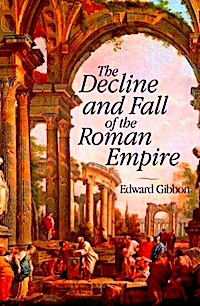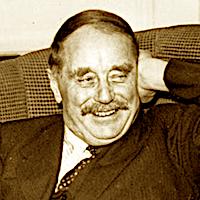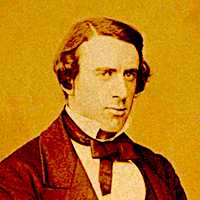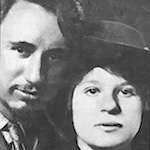

Tao Te Ching

Decline And Fall Of The Roman Empire
Written almost 250 years ago, Gibbon’s classic history of Rome remains relevant and inspiring today. In spite of the massive scholarship and historical discoveries since its publication, any serious student of this time period inevitably turns to Gibbon. Called “the greatest historical work in the English language,” it covers an almost 1400 year time period with eloquence, dramatic story-telling, and deep insight. A philosophical travelogue, it displays little interest in art or music; and yet, it vividly transmits the humanist realization of how rational thinking can transcend superstition and bigotry. Gibbon’s belief that the legitimate purpose of government and culture consists in the promotion of freedom and happiness led to a serious critique of Christianity and comments like, “the heads of the Greek church were ambitious and fanatic monks; and their vices or virtues, their learning or ignorance, were equally mischievous or contemptible.” This led to vociferous criticism; but, after this, the study of history has never been the same.
Quotes from Decline And Fall Of The Roman Empire
“A state of skepticism and suspense may amuse a few inquisitive minds. But the practice of superstition is so congenial to the multitude that, if they are forcibly awakened, they still regret the loss of their pleasing vision.”
Chapters:
Comments: Click to comment
“All that is human must retrograde if it does not advance”
Chapters:
Comments: Click to comment
“Although Pius had two sons, he preferred the welfare of Rome to the interest of his family, gave his daughter Faustina in marriage to young Marcus, and with a noble disdain or rather ignorance of jealousy, associated him to all the labors of government... Their united reigns are possibly the only period of history in which the happiness of a great people was the sole object of government.”
Chapters:
Comments: Click to comment
“Corruption: the most infallible symptom of constitutional liberty.”
Chapters:
Comments: Click to comment
“Faustina has been as much celebrated for her gallantries as for her beauty. The grave simplicity of the philosopher was ill calculated to engage her wanton levity, or to fix that unbounded passion for variety... Marcus thanked the gods for bestowing on him a wife so faithful, so gentle, and of such a wonderful simplicity of manners. The obsequious Senate, at his earnest request, declared her a goddess.”
Chapters:
Comments: Click to comment
“If a man were called upon to fix the period during which the condition of the human race was most happy and prosperous, he would without hesitation name that which elapsed from the accession of Nerva to the death of Marus Aurelius. Their united reigns are possibly the only period of history in which the happiness of a great people was the sole object of government.”
Chapters:
Comments: Click to comment
“If a man were called upon to fix the period in the history of the world during which the condition of the human race was most happy and prosperous, he would without hesitation name that which elapsed from the accession of Nerva to the death of Aurelius. Their united reign are possibly the only period of history in which the happiness of a great people was the sole object of government:”
Chapters:
Comments: Click to comment
“If we contrast the rapid progress of this mischievous discovery (gunpowder) with the slow and laborious advances of reason, science, and the arts of peace, a philosopher, according to his temper, will laugh or weep at the folly of mankind.”
Chapters:
Comments: Click to comment
“In human life the most important scenes will depend upon the character of a single actor... An acrimonious humor falling upon a single fiber of one man my prevent or suspend the misery of nations.”
Chapters:
Comments: Click to comment
“It was an inflexible maxim of Roman discipline that good soldier should dread his own officers far more than the enemy.”
Chapters:
Comments: Click to comment
“It was the first care of the senate to dissolve those dangerous confederacies which taught mankind that, as the Roman arms prevailed by division, they might be resisted by union.”
Chapters:
Comments: Click to comment
“Justice, humanity, or political wisdom, are qualities they are too little acquainted with in themselves, to appreciate them in others.”
Chapters:
Comments: Click to comment
“Man has much more to fear from the passions of his fellow creatures than from the convulsions of the elements. [History is] indeed little more than the register of the crimes, follies, and misfortunes of mankind.”
Chapters:
Comments: Click to comment
“mankind is governed by names… and submit to slavery, provided they are respectfully assured that they still enjoy their ancient freedom.”
Chapters:
Comments: Click to comment
“Marcus revered the character of his benefactor, loved him as a parent, obeyed his as his sovereign... His life was the noblest commentary of the precepts of Zeno, He was severe to himself indulgent to the imperfections of others, just and beneficent to all mankind... Their united reigns are possibly the only period of history in which the happiness of a great people was the sole object of government.”
Chapters:
Comments: Click to comment
“Modes of worship in the Roman world were considered by the people as equally true; by the philosopher, as equally false; and by the magistrate, as equally useful.”
Chapters:
Comments: Click to comment
“Refinements—under the odious name of luxury—have been severely arraigned by the moralists of every age; and it might perhaps be more conducive to the virtue, as well as happiness of mankind, if all possessed the necessaries, and none the superfluities of life. But in the present imperfect condition of society, luxury—though it may proceed from vice or folly—seems to be the only means that can correct the unequal distribution of property.”
Chapters:
Comments: Click to comment
“The most worthless of mankind are not afraid to condemn in others the same disorders which they allow in themselves; and can readily discover some nice difference in age, character, or station, to justify the partial distinction.”
Chapters:
Comments: Click to comment
“The most worthless of mankind are not afraid to condemn in others the same disorders which they allow in themselves.”
Chapters:
Comments: Click to comment
“The perfect equality of men is the point at which the extremes of democracy and despotism are confounded”
Chapters:
Comments: Click to comment
“The power of instruction is seldom of much efficacy, except in those happy dispositions where it is almost superfluous.”
Chapters:
Comments: Click to comment
“The propensity of mankind is to exalt the past, and to depreciate the present.”
Chapters:
Comments: Click to comment
“The reign of Antoninus is marked by the rare advantage of furnishing very few materials for history, which is indeed little more than the register of the crimes, follies, and misfortunes of mankind.”
Chapters:
Comments: Click to comment
“The use of gunpowder… was soon propagated to the extremities of Asia; and the advantage of the European was confined to his easy victories over the savages of the new world.”
Chapters:
Comments: Click to comment
“The various modes of worship which prevailed in the Roman world were all considered by the people as equally true; by the philosopher as equally false; and by the magistrate as equally useful.”
Chapters:
Comments: Click to comment
“There exists in human nature a strong propensity to depreciate the advantages, and to magnify the evils,”
Chapters:
Comments: Click to comment
“this pestilence… produced two strong and irreconcilable factions… Every law, either human or divine, was trampled under foot; and as long as the party was successful, its deluded followers appeared careless of private distress or public calamity.”
Chapters:
Comments: Click to comment
“Under the Roman Empire, the labor of an industrious and ingenious people was variously but incessantly employed in the service of the rich.”
Chapters:
Comments: Click to comment
“War, in its fairest form, implies a perpetual violation of humanity and justice… The terror of the Roman arms added weight and dignity to the moderation of the emperors. They preserved peace by a constant preparation for war”
Chapters:
Comments: Click to comment
“We many acquiesce in the pleasing conclusion that every age in the world has increased and still increases the real wealth, the happiness, the knowledge, and perhaps the virtue, of the human race.”
Chapters:
Comments: Click to comment
Related Lineages (1 lineages)
Quotes about Decline And Fall Of The Roman Empire (5 quotes)

“few books of history have been so widely or so indiscriminately praised… it is doubtful if there is another example in the social sciences of a work of similar longevity, respectability, and popularity, which has had so small a dogmatic or doctrinaire ingredient.”
Comments: Click to comment

“Gibbon's design for this great work demanded a prelude of splendor and tranquility and he makes the most of it in the sunny review of Antonines with which he opens. But he was far too shrewd and subtle not to qualify his apparent approval of the conditions he describes.”
Comments: Click to comment

“The criticisms upon his book ... are nearly unanimous. In accuracy, thoroughness, lucidity, and comprehensive grasp of a vast subject, the History is unsurpassable. It is the one English history which may be regarded as definitive. ... Whatever its shortcomings, the book is artistically imposing as well as historically unimpeachable as a vast panorama of a great period.”
Comments: Click to comment

“All in all, The Decline and Fall of the Roman Empire may be ranked as the supreme book of the 18th century. It was not the most influential but as a work of literary art it was unsurpassed in its time or kind.”
Comments: Click to comment

“Here the greatest historian of all time tells the story not of dying Rome alone, but of that infancy of northern Europe we know as the Middle Ages, the rise of the Papacy, the conversion of Constantine and the coronation of Charlemagne, the bloody tale of Muhammed and his generals... life is not so important that we may not spare the unhurried calm needed to drink in the wisdom of his comments and the music of his periods.”
Comments: Click to comment
Comments (0)